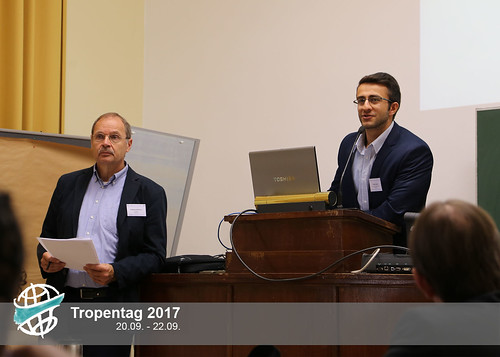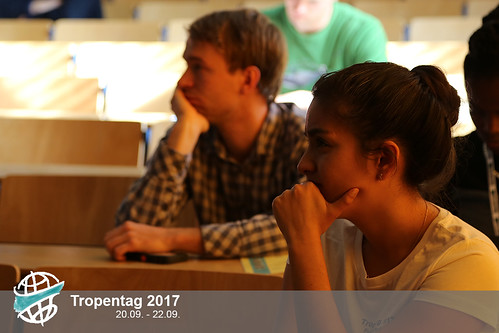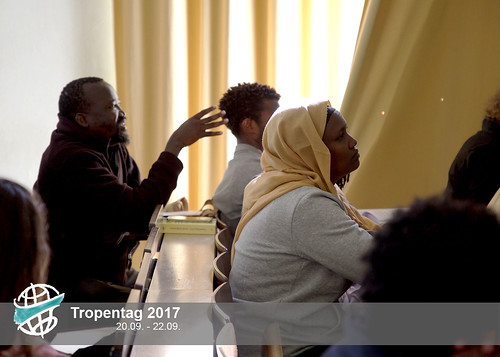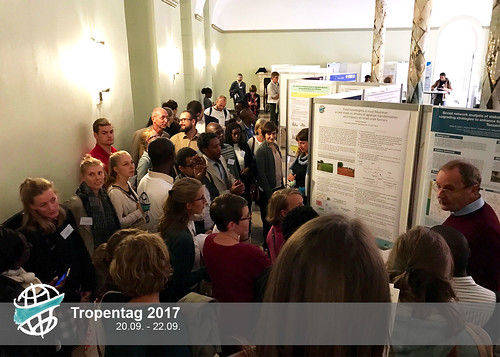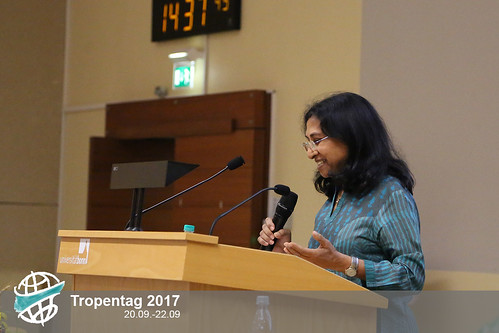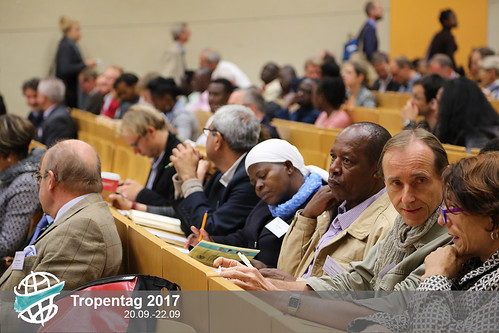megresler's blog
An Apology Poem to Institutions and Livelihoods
Fri, 09/22/2017 - 12:36 — megreslerYes, I attended Oral four in LH8.
My attention, I'll admit, truly a sad state.
Would you mind just looking on Twitter?
That global forum clogged with litter.
Let's move to Plenary 2, lest we be late.
Ending Hunger... or Writing Papers?
Thu, 09/21/2017 - 18:09 — megreslerLike many of my peers in attendance at for the "BMEL Session," oral presentations, I have spent the last year wrestling with one quite specialized, and quite complex, research problem. Mine falls under the umbrella question, "What are pathways towards sustainable food system transformation?". Safely contained within this one research question, I am often tempted to isolate the subtleties of my research from the sweeping and disastrous reality, hunger. Occasionally lost within an abstract cloud of data and theory, I try to remind myself of the necessity of resituating my research within the context of the larger research environment.
The logical, but not always obvious, next question: Should we extend this interrogation one step further and question how our research, our knowledge, and our resources, will be used in application to better society? Are we making change, or are we just writing papers?
Is there an I in 'Science?'
Thu, 09/21/2017 - 18:00 — megreslerBy sharing her narrative as a young girl who questioned why some crop fields were peppered with trees while others were not, Lin Bautze from the Research Institute of Organic Agriculture in Germany unintentionally posed an important question to the audience of Oral Presentation III "Production Methods" on Thursday afternoon. Should research stand by itself, without acknowledging the role of the researcher? Or does the lived experience of a researcher, like Bautze, and the ways it shaped the trajectory of her research, create a new space for the audience to explore the research?
This is certainly a controversial discussion between qualitative researchers, whose position on the research paradigm may vary. Quasi-foundationalists, like myself, would acknowledge a unique lens through which individual researchers analyze and interpret their data. Assuming their analysis is conducted with purposeful reflexivity and self-awareness, I believe that research in #FutureAgriculture has something foundational to gain from the person/s involved in gathering, sorting, analyzing and interpreting their data. From this perspective, I argue we are better equipped as researchers when we allow our intersectionalites to contribute to robust analyses of our data.
This is what Bautze has done in her exploration of alley cropping as an adaptation strategy for a future changing climate in Africa. This should also be the direction #FutureAgriculture research continues moving forward in.
Limitations to Moving Forward
Thu, 09/21/2017 - 13:15 — megreslerHalfway through Day 2 of Tropentag 2017, limitations to productivity seem to be a recurring theme across many disciplines.
Bulle Dabasso, from the University of Nairobi, described to his audience a bottleneck in economic potential, the limited market value of lean animals in Kenya. His study provided a detailed description of Stratified Cattle Production (SCP) as an option for improving market value for lean animals, therefore increasing the economic potential of pastoral livestock production in Kenya. Debasso's explanation of the necessity of addressing this bottleneck seemed relevant in the context of his research, but I was left desiring further exploration of the social and ecological limitations which almost certainly also work to impede productivity.
Certainly, I'm not the only one. Is it not fair to say that research in #FutureAgriculture must consider not only the economic limitations of moving towards productivity transformation, but also the ecological and social limitations embedded within context-specific research?
Should It Be Out of Our Hands?
Thu, 09/21/2017 - 10:15 — megreslerCast under the soft morning light of an empty hall, Poster Session 2 "Markets" began in a far more intimate fashion than the session held in the space yesterday afternoon. Perhaps the combination of a smaller audience, a quieter surrounding hall (and copious coffee personally) worked together to generate conditions for a far more interactive discussion of forward-looking market-centric research.
As a self-identifying young researcher (one of the dominant themes of yesterday's Welcome Address), I am currently deeply engaged with preparations for my first poster presentation at an upcoming conference later this autumn. The opportunity to follow multiple poster sessions this week has of course reiterated the necessity of certain characteristics in delivering an effective poster presentation, but perhaps more significantly, it has unveiled a dimension of "Well, this is out of my hands..." that seems inherent to this particular form of scientific communication. I am specially referring to the presentation time and poster location. Does the random selection of your presentation hall, or whether your talk precedes or follows a coffee break, significantly impact the effectiveness of your poster presentation? With no control over these factors, I would like to ask senior researchers for advice moving forward: What strategies have you cultivated to navigate some of these challenges? How can young researchers improve for future international conference environments?
Late start. Inaudible. THE NEW DIRECTION OF AG!
Wed, 09/20/2017 - 19:42 — megreslerOne audible theme carried across the session: a need for distinctly long-term thinking when seeking solutions for food system transformation. Despite the challenging circumstances, the fourteen presenters of Poster Session 1 "Institutions and Livelihoods" on Wednesday afternoon brought innovative research into discussions of gender and rural sociology.
From whether childhood experiences influenced the decision to migrate or not from rural areas in Ethiopia, to considerations of gender and social hierarchy in forward-looking decisions within Tanzanian vegetable production, these posters were representative of the direction future agricultural research is moving in.
While not complaining about the additional 60 seconds added to her presentation time due to the late-start and missing presenters, Mst. Tania Parvin from the University of Hohenheim explained, "I think next time we should start on time... the last person might be presenting in front of no audience."Speaking from an air of frustration with the volume of the presentations Parvin's colleague Mary added the suggestion, "Maybe next time they should provide a mic?"
The Future (of Ag) is female (Cooperation)
Wed, 09/20/2017 - 16:51 — megreslerFollowing a series of male speakers, leading expert Professor Agarwal guided her audience in considering alternative pathways forward in the future of agriculture. "We cannot wait for technological fixes… we need institutions based and built upon farmer cooperation," emphasized Professor Agarwal in her keynote address.
Referring to group farming cooperatives and joint liability groups as solutions, this poet and policy advocate highlighted some of the widely-discussed topics within the field of agroecology: the feminization of agriculture as a global phenomenon, the changes it will bring, and ways to increase productivity without sacrificing social inclusion.
I had a personal desire for Professor Agarwal to have gone one step further in her talk. Integrating group farming cooperatives drastically enhance productivity along with equity in smallholder agroecosystems in the Global South. However, what we need now are clear and developed movement towards implementation. She played it safe, when her speech could have been a fire starter, to spark discussion.
Ag's Future or Past?
Wed, 09/20/2017 - 16:19 — megreslerAt what point should a researcher with limited understanding of the socio-political context and no lived experience in a country, feel comfortable questioning the strategies of an expert from that country?
Speaking of food producers in Sierra Leone in his Tropentag 2017 keynote speech, World Food Prize Laureate Monty Jones claimed, “these people deserve to use external inputs, such as fertilizers, improved seeds, gm."
Looking to the future, shouldn't we transform the food system, rather than just reform an admittedly flawed system? We must be openly critical of existing production standards that shape these systems, for example, agricultural production methods that rely on mechanization and rely on external inputs. Jones’ direct emphasis on biotechnological innovation and production intensification in Sierra Leone seem to conflict with, at least in my mind, a pathway towards sustainable transformation.





